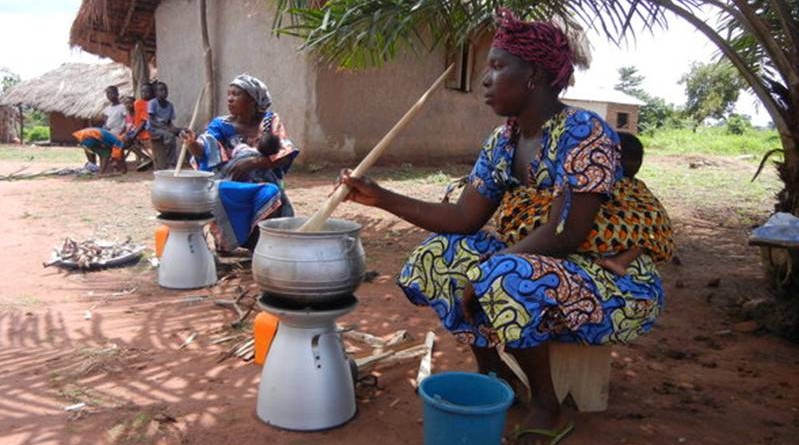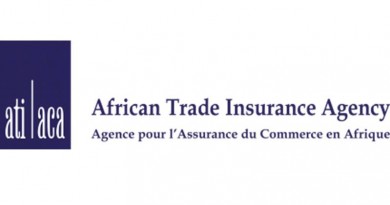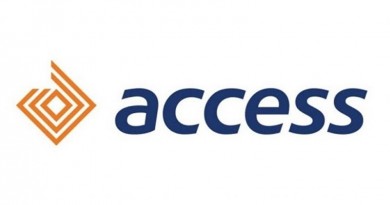Nigeria Clean Cooking Forum: Stakeholders commit to enhancing sustainable clean cooking for Nigerians
| Stakeholders in the Nigerian clean cooking space have agreed to work together to accelerate the transition to sustainable clean cooking in Nigeria. This pledge was made at the Nigeria Clean Cooking Forum (NCCF), which will be held in Abuja on October 6 and 7, 2022. The Nigerian Alliance for Clean Cooking, in collaboration with the Federal Ministry of Environment, the Nigeria Energy Support Programme (NESP), GIZ, and the Heinrich Boell Foundation, hosted a two-day event that brought together key policymakers, private sector players, foundations, research institutions, women’s groups, civil society stakeholders, and international partners to discuss plans for the widespread adoption of clean cooking solutions in Nigeria. |
| The forum’s major outcomes include the need for the Nigerian Alliance for Clean Cooking, the Federal Ministry of Environment, and ICEED to begin discussions on how to establish a comprehensive data collection system for the sector. The National Population Commission and the National Bureau of Statistics should be involved in such discussion. |
| It was also agreed that the Forum’s recommendations be incorporated into the draft clean cooking policy, and early steps should be taken to develop an implementation strategy for the clean cooking policy. The need for deeper sub national engagements to enhance their roles to supporting clean cooking expansion was also made. The Forum also noted the necessity for the Standards Organization of Nigeria to work with important stakeholders to ensure the establishment of a new cookstoves testing facility in Nigeria in order to ensure high-quality locally manufactured stoves that can benefit from climate/carbon financing; and the necessity for NACC to further engage with humanitarian stakeholders to canvass for increased clean cooking interventions for crisis-affected people in Nigeria and fully integrate investment and consumer financing for clean cooking. While it is the overall objective of the Federal Government to ensure universal access to clean cooking, this cannot be achieved without the support and buy-in of sub-national governments. During the Forum, some sub-national governments, including Kaduna, Niger, Ebonyi, and Cross River States, presented some of their initiatives to grow the clean cooking industry within their respective states. The States pledged to work with the national government in the areas of implementation of policies and awareness campaign. Clean cooking development can only be accelerated with adequate financial mobilization. During the forum, panelists and stakeholders looked into all possible sources of clean cooking financing, including government investment through Nigeria’s apex bank, the Central Bank of Nigeria (CBN), grants and loans from development finance institutions, and carbon market financing, among others. Representatives from the CBN and carbon market development firms such as UP Energy Group, Impact Carbon, GCA Capital Partners, and the Centre for 21st Century Issues discussed the various financing options. The CBN revealed that it has a couple of investment financing facilities available but that access to any of its facilities would require security. The carbon development companies also discussed the benefits of the carbon market as well as the challenges involved. They also provided overviews of some of their initiatives in Nigeria. Stakeholders suggested that the CBN collaborate with commercial banks and stove developers/promoters to find a way to de-risk the sector. Furthermore, stakeholders agreed that the Federal Ministry of Environment plays an important role in the carbon market development programme in terms of enabling environment. While the clean cooking situation is quite bad across Nigeria, it is very critical in conflict and crisis-affected areas across Nigeria, especially in the Northeast. Stakeholders, including representatives of the Federal Ministry of Humanitarian Affairs, Disaster Management and Social Development, FAO, UNHCR, IOM, and the Coordinator of the Global Humanitarian Energy Exchange Network (HEEN), brainstormed on ways of bridging the household cooking energy gap for conflict and crisis-affected populations. Some of the highlights of the discussions included the need to mainstream Safe Access to Fuels and Energy (SAFE) programming in humanitarian interventions and building livelihoods on clean energy in humanitarian settings, as is currently being successfully practiced by FAO. Information on the dangers faced by conflict and crisis-affected populations in the quest for cooking fuel is also very important to inform policy makers and programme designers for policy making, legislation and designing of clean cooking interventions. The Forum also presented an opportunity for clean cookstoves developers and promoters across Nigeria to exhibit and demonstrates the co-benefits of various clean cooking technologies and fuels. The forum was attended by over 170 stakeholders including several dignitaries who pledged their untiring support in ensuring increased adoption to clean cooking solutions in Nigeria. Among them are: Barrister Mohammed Abdullahi the Honourable Minister of Environment represented by Dr. Iniobong Abiola-Awe, Director Department of Climate Change, Chief Executive Officer of the Clean Cooking Alliance (CCA), Dymphna van der Lans (virtual message), Distinguished Senator Hassan Hadeja, Deputy Chairman of the Senate Committee, Honourable Minister of Health, Dr. Osagie Ehanire, represented by the Director Climate Change and Environmental Health, Dr. A. B. Shuaibu, Ewah Otu Eleri, Executive Director of ICEED and Chairman of the Board of Trustees of the Nigerian Alliance for Clean Cooking, the Honourable Minister of Power, Engr. Abubakar D. Aliyu, FNSE, represented by Acting Director, Renewable and Rural Power Access, Engr. A.D Abubakar, Chairman of the House Committee on Climate Change, Honourable Ibrahim Bukar, represented by the Clerk of the Committee, Mr. Ukwutu, Director General of the National Orientation Agency, Dr. Garba Abari, represented by the Director of Planning and Research, Mr. Samuel Sol, Mallam Mele Kyari, Group Chief Executive Officer of NNPC Limited, represented by Lawal Bello, Chief Executive Officer of NNPC Retails, Jochen Lucksheiter, Country Director of the Heinrich Boell Foundation, Team Leader Green and Digital Economy in Nigeria of the European Union, Ms. Inga Stefanowicz, represented by the Project Officer Energy and Circular Economy, Mr. Geoffrey Ogbemudia, Head of the Nigeria Energy Support Programme (NESP) of GIZ, Mr. Duke Benjamin, represented by the Head of Unit, (On-&Off-Grid), Sustainable Energy Access, Mr. Olumide Fatoki, and the Chief Executive Officer of Clean Energy and Safe Environment Initiative and National Coordinator, NDC Partnership, Huzi Mshelia among others. The forum sponsors – Nigeria Energy Support Programme of GIZ, Clean Cooking Alliance, Heinrich Böell Foundation, Clean Cooking Alliance, Resource and Environmental Policy Research Centre of UNN, Nsukka, UP Energy Group and Standards Organization of Nigeria – expressed their readiness to continue to work with various stakeholders in Nigeria to continue promoting access to clean cooking for all. |




